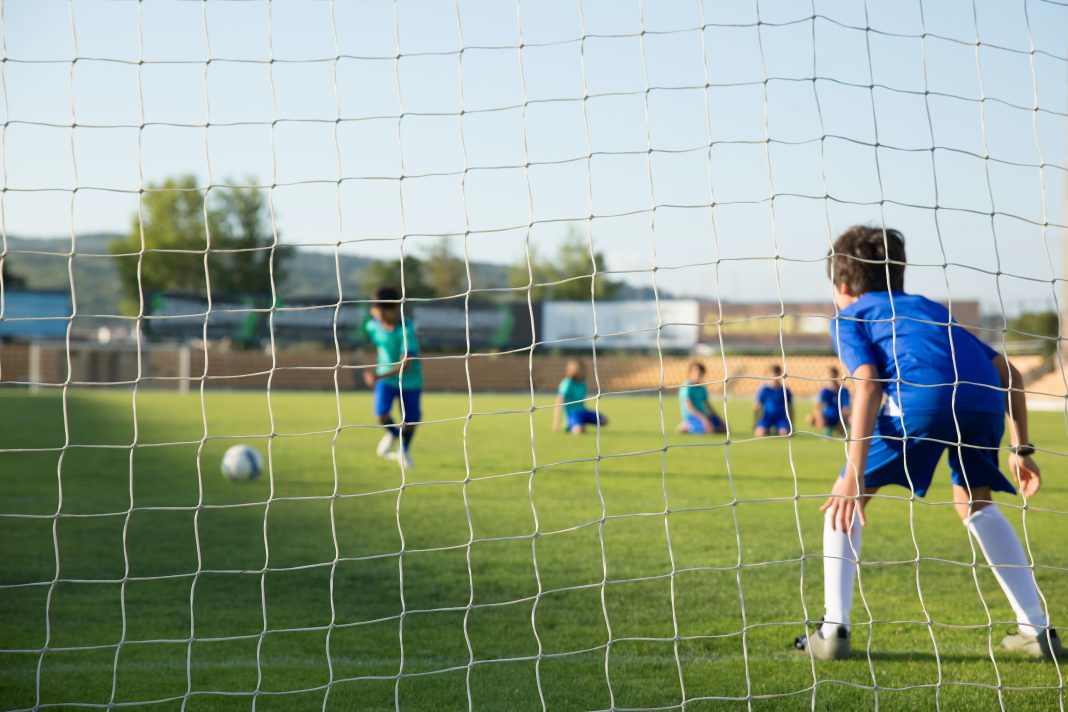The teenage years are a time of profound growth and self-discovery, marked by a delicate balance between self-esteem, challenges, and personal development. Engaging in teen sports during this critical phase not only promotes physical health but also plays a pivotal role in shaping mental resilience and toughness.

Sports offer an environment where teenagers can cultivate essential life skills such as perseverance, adaptability, and goal-setting – attributes that collectively contribute to building mental toughness. Delve into the transformative journey of how sports such as swimming can be a powerful catalyst for nurturing mental toughness in teenagers, equipping them with the tools to face life’s obstacles with resilience and character.
Taking Challenges As Opportunities
Sports inherently involve challenges, whether it’s pushing physical limits, competing against skilled opponents, or striving for personal records. Engaging in sports teaches teenagers that challenges are not insurmountable barriers but rather opportunities for growth.
When they encounter difficulties on the field or court, they learn to adapt, strategize, and persist. This mindset of approaching challenges as opportunities fosters mental resilience, enabling teenagers to face adversity with determination and a positive outlook.
Setting Goals
Setting goals is a fundamental aspect of sports, and it’s a skill that seamlessly translates into various facets of life. Through sports, teenagers learn to set both short-term and long-term goals – be it mastering a specific skill, improving their performance, or achieving team objectives.
The process of setting goals and working diligently to attain them instills discipline, focus, and the understanding that success is a result of consistent effort. This goal-oriented approach nurtures mental toughness by teaching teenagers to remain committed to their aspirations even in the face of setbacks.
Learning From Failures
Sports provide a safe space for teenagers to experience failures and setbacks, essential components of personal growth. Whether it’s losing a match, missing a shot, or falling short of a personal best, these experiences teach teenagers that setbacks are not synonymous with defeat.
Instead, they are opportunities to learn, adapt, and grow. Embracing failures as stepping stones to success fosters mental toughness by teaching teenagers to bounce back from disappointments and approach challenges with renewed determination.
Cultivating A Resilient Attitude
Competitive sports often involve high-pressure situations that require split-second decisions and calm under stress. Engaging in these moments fosters emotional control, mental clarity, and resilience. As teenagers learn to manage their emotions, stay composed, and make effective decisions in the heat of the moment, they develop a sense of self-assuredness that extends beyond sports. This ability to handle pressure contributes to mental toughness by preparing teenagers to face life’s demands with grace and composure.
Working As A Team
Team sports like water polo offer teenagers the opportunity to collaborate, communicate, and work towards shared objectives. Learning to navigate team dynamics, communicate effectively, and contribute positively to a collective effort is a valuable lesson in adaptability and empathy.
These skills bolster mental toughness by teaching teenagers the importance of working with others, understanding diverse perspectives, and embracing the challenges that come with cooperation. It also enables them to expand their social circles, gaining confidence and an open mind along the way.
Gaining Perspective
Sports teach teenagers that success is a result of consistent effort, dedication, and practice. The correlation between hard work and positive outcomes reinforces the understanding that achievements are earned, not given. This perspective instills humility and prevents entitlement, qualities that are essential for building mental toughness. Recognizing the value of effort also encourages teenagers to remain committed to their goals, even when progress seems slow.
Respecting Their Progress
Participating in sports nurtures an appreciation for the journey, not just the destination. Through the ups and downs of training, competing, and improving, teenagers learn that growth is a continuous process. This mindset shift from immediate results to long-term progress fosters mental toughness by cultivating patience, perseverance, and a commitment to self-improvement.
In the realm of sports, teenagers discover a powerful laboratory for nurturing mental toughness. The challenges, setbacks, victories, and collaborations encountered on the field become invaluable lessons that shape their character and resilience. As they learn to embrace challenges, set and pursue goals, overcome failures, and collaborate effectively, teenagers are equipped with the tools to face life’s uncertainties with unwavering confidence.
As adults, these teenagers can go on to take multiple hobbies, whether it’s cycling or even embracing competitive swimming. But it’s only through their initial introduction to sports that they manage to do so. Through sports, they emerge as individuals who not only excel athletically but also embody mental toughness – a quality that propels them toward personal growth and success in all aspects of life.



















